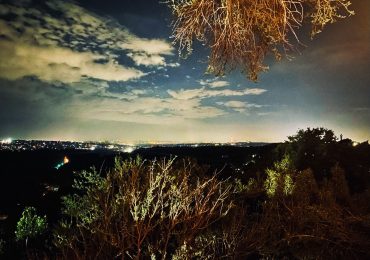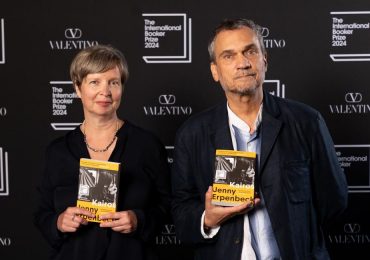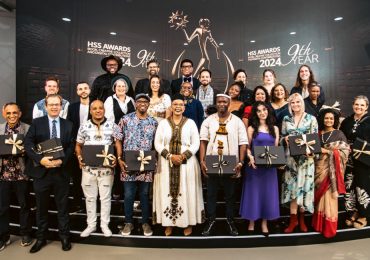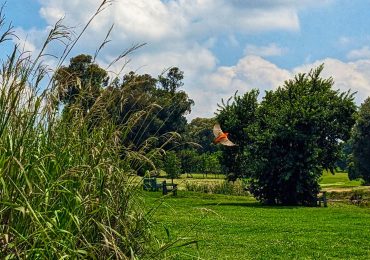The 2018 Man Booker Prize longlist has been announced, including a graphic novel for the first time.
The £50,000 prize had 171 submissions this year—the highest number in its fifty year history.
For the second year in a row, no Africa-based authors have made the longlist.
Before 2014, the Man Booker Prize was open only to authors from the United Kingdom, the Republic of Ireland, the Commonwealth and Zimbabwe. However in 2014 the rules were relaxed to include all English-language novels published in the UK, controversially opening the door to the United States for the first time. The inclusion of four or five American books on subsequent longlists has resulted in the number of authors from countries such as Australia, India, Canada and the UK/Ireland dipping significantly, but Africa, being a continent rather than a country, is arguably the most affected party. The new-look 2014 longlist did not feature any African authors—something that had happened just four times previously, since the longlists were first made public in 2001.
Since then, Africa’s fortunes have been mixed. The 2015 longlist featured two African authors: Chigozie Obioma (Nigeria) for The Fishermen and Laila Lalami (US/Morocco) for The Moor’s Account. The 2016 longlist featured one African, JM Coetzee (South Africa/Australia) for The Schooldays of Jesus. No African authors featured in 2017.
In the four years since the prize rule change, the United States has emerged triumphant twice, with Paul Beatty in 2016 and George Saunders in 2017.
Three Americans have made the list this year, slightly down on previous years, with eight out of the thirteen from the UK and Ireland, and two from Canada. Belinda Bauer, longlisted for Snap, was born in England, but spent ten years in South Africa as a child. Esi Edugyan, longlisted for Washington Black, was born in Canada to Ghanaian parents.
Aside from the national question, also left off this year’s longlist are the established authors Julian Barnes, Alan Hollinghurst, Ali Smith, Peter Carey and Pat Barker, who all had novels eligible.
This year, for the first time, there is a graphic novel in the mix: Nick Drnaso’s acclaimed Sabrina, the story of a young woman who goes missing, leaving behind clues about her disappearance that fuel conspiracy theories. Another unclassifiable contender is The Long Take by the Scottish poet Robin Robertson, a film noir-era novel about a young D-Day veteran, which mixes poetry and prose.
Michael Ondaatje, who recently won the one-off Golden Man Booker Prize for The English Patient, is longlisted for his seventh novel Warlight. He is joined by three other authors previously nominated for the prize: Esi Edugyan (shortlisted in 2011 for Half-Blood Blues), Donal Ryan (longlisted in 2013 for The Spinning Heart), and Richard Powers (longlisted in 2014 for Orfeo).
Four debut novels have made the cut, including The Long Take by Robin Robertson, The Water Cure by Sophie Mackintosh, In Our Mad and Furious City by Guy Gunaratne and Everything Under by Daisy Johnson. At twenty-seven, Johnson is the joint youngest author on the list, along with Sally Rooney (Normal People).
2018 Man Booker Prize longlist, or Man Booker ‘Dozen’
Author (country/territory) Title (imprint)
- Belinda Bauer (UK) Snap (Bantam Press)
- Anna Burns (UK) Milkman (Faber and Faber)
- Nick Drnaso (USA) Sabrina (Granta Books)
- Esi Edugyan (Canada) Washington Black (Serpent’s Tail)
- Guy Gunaratne (UK) In Our Mad and Furious City (Tinder Press)
- Daisy Johnson (UK) Everything Under (Jonathan Cape)
- Rachel Kushner (USA) The Mars Room (Jonathan Cape)
- Sophie Mackintosh (UK) The Water Cure (Hamish Hamilton)
- Michael Ondaatje (Canada) Warlight (Jonathan Cape)
- Richard Powers (USA) The Overstory (Willian Heinemann)
- Robin Robertson (UK) The Long Take (Picador)
- Sally Rooney (Ireland) Normal People (Faber and Faber)
- Donal Ryan (Ireland) From A Low And Quiet Sea (Doubleday Ireland)
This year’s panel of judges is: the philosopher Kwame Anthony Appiah (chair), crime writer Val McDermid, cultural critic Leo Robson, feminist writer and critic Jacqueline Rose, and artist and graphic novelist Leanne Shapton.
Appiah, says: ‘Perhaps unsurprisingly, given the times, there were many dystopian fictions on our bookshelf—and many novels we found inspirational as well as disturbing. Some of those we have chosen for this longlist feel urgent and topical, others might have been admired and enjoyed in any year.
‘All of these books—which take in slavery, ecology, missing persons, inner-city violence, young love, prisons, trauma, race—capture something about a world on the brink. Among their many remarkable qualities is a willingness to take risks with form. And we were struck, overall, by their disruptive power: these novels disrupted the way we thought about things we knew about, and made us think about things we didn’t know about.
‘Still, despite what they have in common, every one of these books is wildly distinctive. It’s been an exhilarating journey so far and we’re looking forward to reading them again. But now we’ll have thousands and thousands of people reading along with us.’
The shortlist of six books will be announced on Thursday, 20 September 2018. The shortlisted authors each receive £2,500 and a specially bound edition of their book.
The 2018 winner will be announced on Tuesday, 16 October in London. The winner will receive £50,000.
The Booker is known for its bookselling clout: in the week following the 2017 prize announcement, sales of George Saunders’s winning novel Lincoln in the Bardo increased by 1227 per cent. Bloomsbury has to date sold over 230,ooo copies of the novel across all formats, with 70 per cent of those sales coming after the win.





